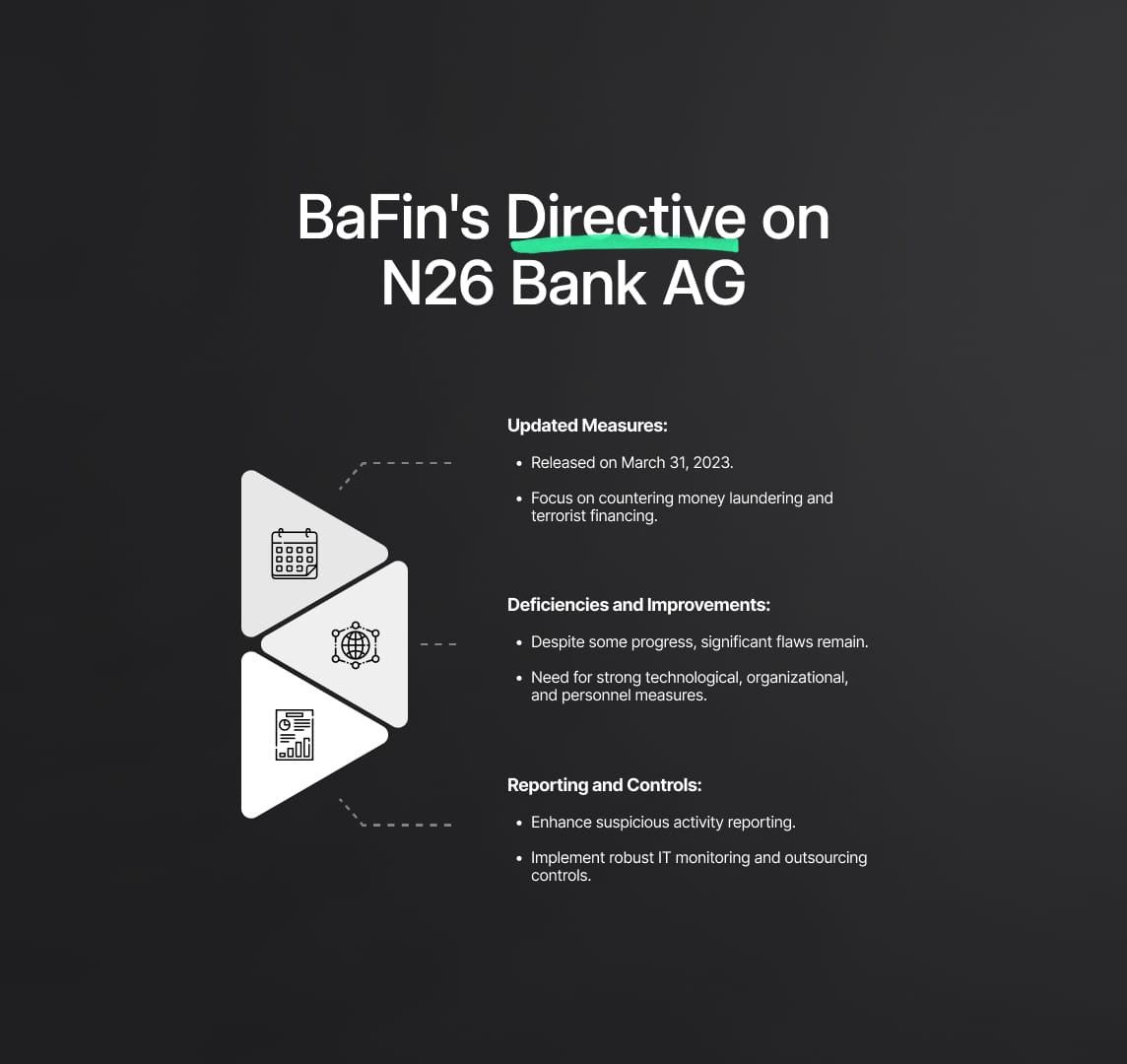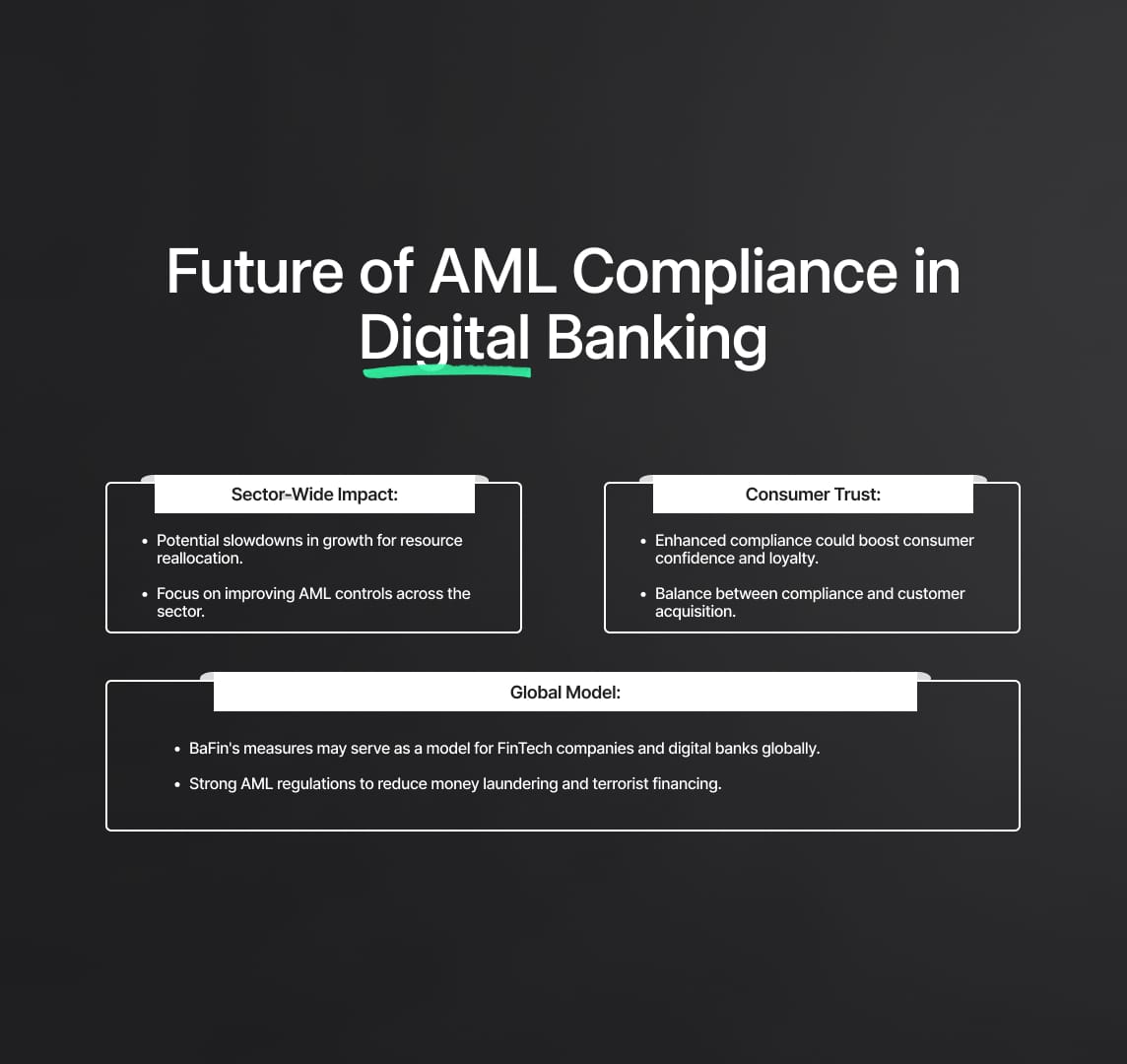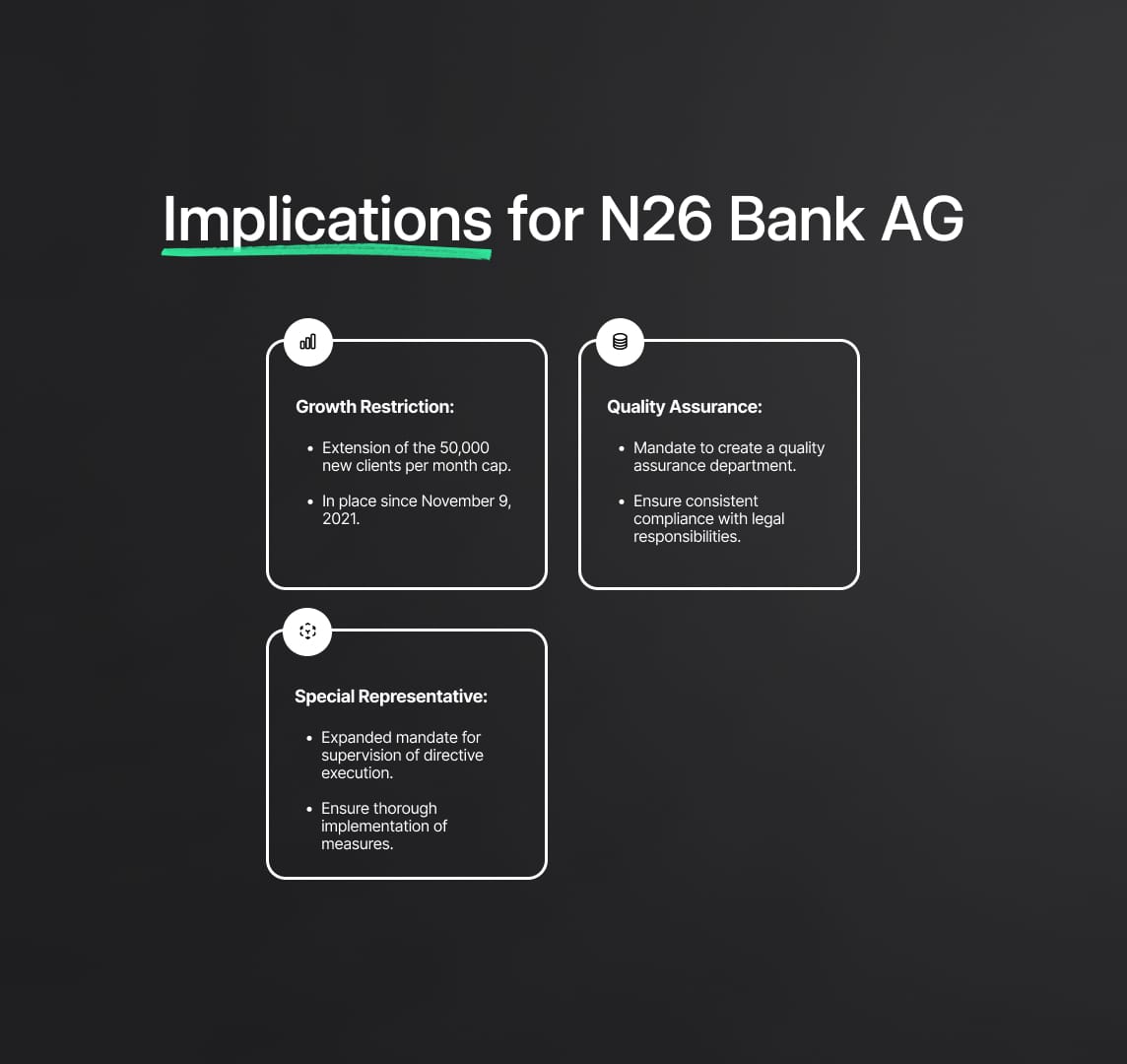AML Compliance: Bafin's Directive on N26 Bank
BaFin extends anti-money laundering measures against N26 Bank AG. Deficiencies remain despite progress. Bank must improve suspicious activity reporting, IT monitoring, and outsourcing controls. Growth restriction on new customers extended. Special representative's mandate expanded.

AML Compliance: BaFin Measures against N26 Bank AG
On March 31, 2023, the German Federal Financial Supervisory Authority (BaFin) released an updated version of its anti-money laundering measures against N26 Bank AG. The bank's processes for countering money laundering and terrorist financing are still lacking, despite modest advances. In order to guarantee appropriate business organization and consistent compliance with legal responsibilities, N26 Bank AG must implement and maintain the precise technological, organizational, and personnel measures outlined in BaFin's decision. The directive mainly impacts the bank's reporting of questionable activity. The bank needs to create a quality assurance department, implement strong outsourcing controls, and set up sufficient IT monitoring. The growth cap of 50,000 new clients each month, which has been in effect since November 9, 2021, was also extended by BaFin. The authority granted to the special representative to supervise the execution of the directives was also expanded.

Redefining AML Compliance: BaFin's Directive and the Future of Digital Banking

By enforcing strict Anti-Money Laundering (AML) regulations, BaFin, the German Federal Financial Supervisory Authority, is setting the standard in the battle against money laundering and the funding of terrorism. Strong AML controls are crucial for FinTech companies and digital banks worldwide, as seen by the regulatory scrutiny surrounding well-known digital bank N26 Bank AG.
BaFin increased its grip on N26 Bank AG on March 31, 2023, expanding and clarifying its anti-money laundering procedures. This instruction emphasizes the need of ongoing improvement as a crucial component of AML compliance. N26 Bank AG has made improvements, but its procedures for preventing money laundering and terrorism financing still have flaws. The prompt and efficient resolution of these deficiencies, namely with the reporting of suspicious behavior, IT monitoring, quality assurance, and outsourced controls, is imperative for N26 Bank AG as well as other FinTech companies and digital banks worldwide.
The directive from BaFin may have important ramifications that alter the FinTech scene. Some growing regions may experience potential slowdowns as a result of resources being reallocated to improve AML controls. AML compliance may become the focus of the sector as a whole, improving the prevention of money laundering and so discouraging potential fraudsters.
Furthermore, in the world of digital banking, compliance is more important than quick expansion, as seen by the continuation of a growth restriction at N26 Bank AG that caps the number of new customers. These actions could increase consumer confidence and loyalty in a time when customer trust is crucial, balancing any short-term effects on client acquisition.
Digital banks need to strengthen their outsourced controls and IT infrastructure in order to meet the strict AML regulations. Creating a quality assurance function for continuing compliance is crucial as part of this. Since regulations are the main focus, timely compliance is essential.
As the special representative's responsibility to supervise the execution of mandated actions continues, the significance of regulatory compliance in the digital banking industry becomes increasingly evident. N26 Bank AG and other FinTech companies should think about hiring regulatory compliance specialists or giving compliance a bigger position inside their companies.
These advancements may serve as a global model for FinTech companies and digital banks in the future. Strong AML regulations might drastically lower the incidence of money laundering and terrorist financing, improving the sector's general security and dependability. The attention given to N26 Bank AG and the instruction from BaFin could serve as a wake-up call that ushers in a new age of AML compliance in the online banking sector.

Reduce your
compliance risks

